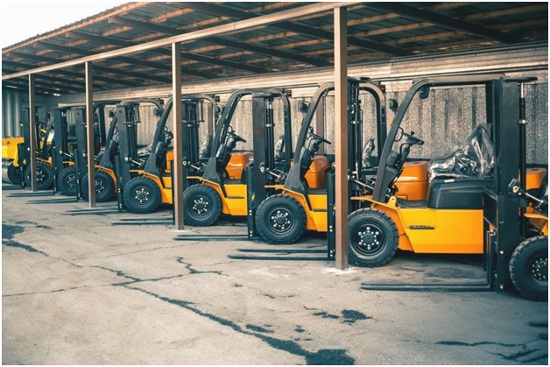When it comes to forklifts, companies often face the decision of whether to buy or rent. While some businesses choose to own a fleet of forklifts, there are compelling reasons to consider renting instead. This article explores the advantages of renting a forklift over buying, providing insights into the factors that should be considered when making this decision.
Cost Effectiveness
One of the primary reasons companies opt for renting forklifts is the significant cost savings compared to purchasing. Buying a forklift requires a substantial upfront investment, and ongoing maintenance expenses can add up. Renting, on the other hand, allows businesses to access the necessary equipment without the burden of ownership costs. This option is particularly suitable for companies that have occasional or seasonal forklift needs.
Access to Upgraded Equipment
Technological advancements continually improve the features and capabilities of forklifts. However, owning a forklift means being stuck with the same model for an extended period, potentially missing out on these upgrades. By choosing to rent, businesses can ensure access to the latest models and take advantage of advanced features that enhance productivity and efficiency.
Safety Considerations
Operating a forklift requires expertise and knowledge of its functionalities and safety protocols. If your staff is unfamiliar with forklift operations, it can pose a risk to both employees and equipment. Renting a forklift comes with the added benefit of having professional contractors who provide proper training and instructions to ensure safe and smooth operation.
Affordable Long-Term Plans
Renting a forklift offers flexible pricing options based on the desired duration. Short-term rentals come at a lower cost compared to long-term contracts. However, for businesses with ongoing or extended forklift requirements, rental contractors often provide affordable packages for extended durations. Opting for a long-term rental can be a cost-saving solution for those with sustained usage needs.
Scalability and Flexibility
Many businesses require multiple forklifts to meet their operational demands. However, purchasing multiple units can be financially burdensome, especially when usage frequency is uncertain. Renting allows businesses to scale their forklift fleet as needed, using multiple units without the commitment of ownership costs. Contractors offer packages for renting multiple forklifts, providing the necessary flexibility and adaptability for changing business requirements.
Assurance of Quality Equipment
Over time, the efficiency and quality of owned forklifts may deteriorate, impacting overall productivity. In contrast, rented forklifts are typically less than two years old, meeting industry standards for efficiency and reliability. Rental companies ensure that their equipment is well-maintained and serviced regularly, minimizing the risk of breakdowns and maximizing productivity.
Reduced Downtime and Maintenance
When a owned forklift breaks down, it can lead to significant downtime as the company arranges repairs or waits for replacement parts. This downtime can disrupt operations and result in lost productivity. Hiring a forklift eliminates the need to worry about maintenance and repairs. Rental companies are responsible for ensuring that their equipment is in proper working condition, and they have backup options available in case of any unforeseen issues. This allows businesses to maintain seamless operations without worrying about unexpected breakdowns.
Avoidance of Depreciation Costs
Like any other equipment, forklifts depreciate over time. This depreciation can significantly impact the value of the owned forklift when it comes time to sell or trade it in for a newer model. By renting a forklift instead of buying, businesses can avoid the hassle and financial loss associated with depreciation. They can simply return the equipment to the rental company at the end of the contract, without having to worry about resale values or the hassle of finding a buyer.
Adaptability to Changing Needs
Business needs can fluctuate over time, especially during periods of growth or downturns. Buying a forklift locks a company into a specific type and size of equipment. This can become problematic if the business’s requirements change, and the forklift no longer meets those needs. Renting offers the advantage of adaptability, allowing businesses to easily switch between different types and sizes of forklifts as their needs evolve. This flexibility ensures that operations can continue smoothly without any hindrances.
Access to Specialised Equipment
Certain industries may require specialized forklifts to handle unique tasks or operate in specific environments. Purchasing specialized equipment for occasional use can be an expensive investment, especially if it remains idle for long periods. Renting specialized forklifts provides businesses with access to the exact equipment they need for specific projects or tasks, without the need to invest in purchasing and maintaining specialized equipment.
Environmental Sustainability
Renting forklifts aligns with the principles of environmental sustainability. Owning a fleet of forklifts entails higher energy consumption, maintenance waste, and the eventual disposal of outdated equipment. Renting promotes a circular economy, allowing forklifts to be reused by different businesses, reducing resource consumption and minimizing waste. By choosing to rent instead of buy, companies can contribute to a greener future.
Conclusion
Renting a forklift offers numerous advantages over buying, making it a preferred option for many businesses. The cost-effectiveness, access to upgraded equipment, safety considerations, affordable long-term plans, scalability, and assurance of quality equipment are compelling reasons to consider renting. By partnering with reputable rental contractors, companies can enjoy the benefits of having reliable and efficient forklifts without the financial burdens associated with ownership.




















